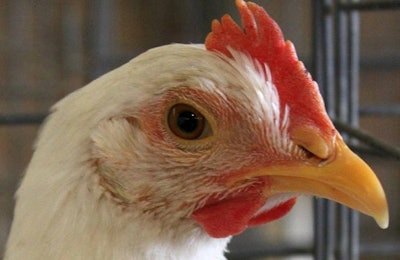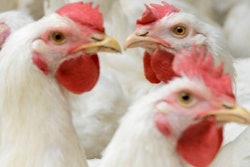
Virulent Newcastle disease (vND) has been confirmed in a commercial chicken flock in Riverside County, California, the United States Department of Agriculture’s (USDA) Animal and Plant Health Inspection Service (APHIS) announced on December 15.
This finding is part of an outbreak in southern California that began in May 2018 in backyard birds. Prior to now, nearly all of the almost 200 confirmed cases of vND have been in backyard exhibition chickens in Riverside, San Bernardino, Los Angeles and Ventura counties, although it was also confirmed in a live bird market in Los Angeles County about two months ago.
The recent discovery marks the first case of vND, formerly known as exotic Newcastle disease, in a U.S. commercial poultry flock since 2003. APHIS has not yet revealed whether the affected flock was a broiler or layer flock, nor has it identified the company affiliated with the affected farm.
APHIS, according to a press release, is working closely with the California Department of Food and Agriculture (CDFA) to respond to the finding, limiting the disease’s spread in commercial poultry, and then eradicating it. Federal and state partners are conducting additional surveillance and testing in the area, and are working with nearby commercial farms to increase biosecurity to prevent additional disease spread.
The new vND case confirmed as the California Department of Food and Agriculture (CDFA) is ordering that all birds be euthanized in Compton (Los Angeles County), Muscoy (San Bernardino County) and Mira Loma/Jurupa Valley (Riverside County). That order was announced in late November by California State Veterinarian Annette Jones, who said euthanizing the birds was necessary to help prevent the further spread of vND.
Amid the outbreak, APHIS is bird owners follow good biosecurity practices to help protect their birds from infectious diseases. These include simple steps like washing hands and scrubbing boots before and after entering a poultry area; and cleaning and disinfecting tires and equipment before moving them off the property.
















